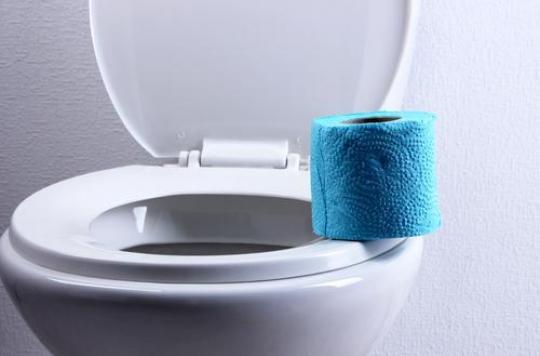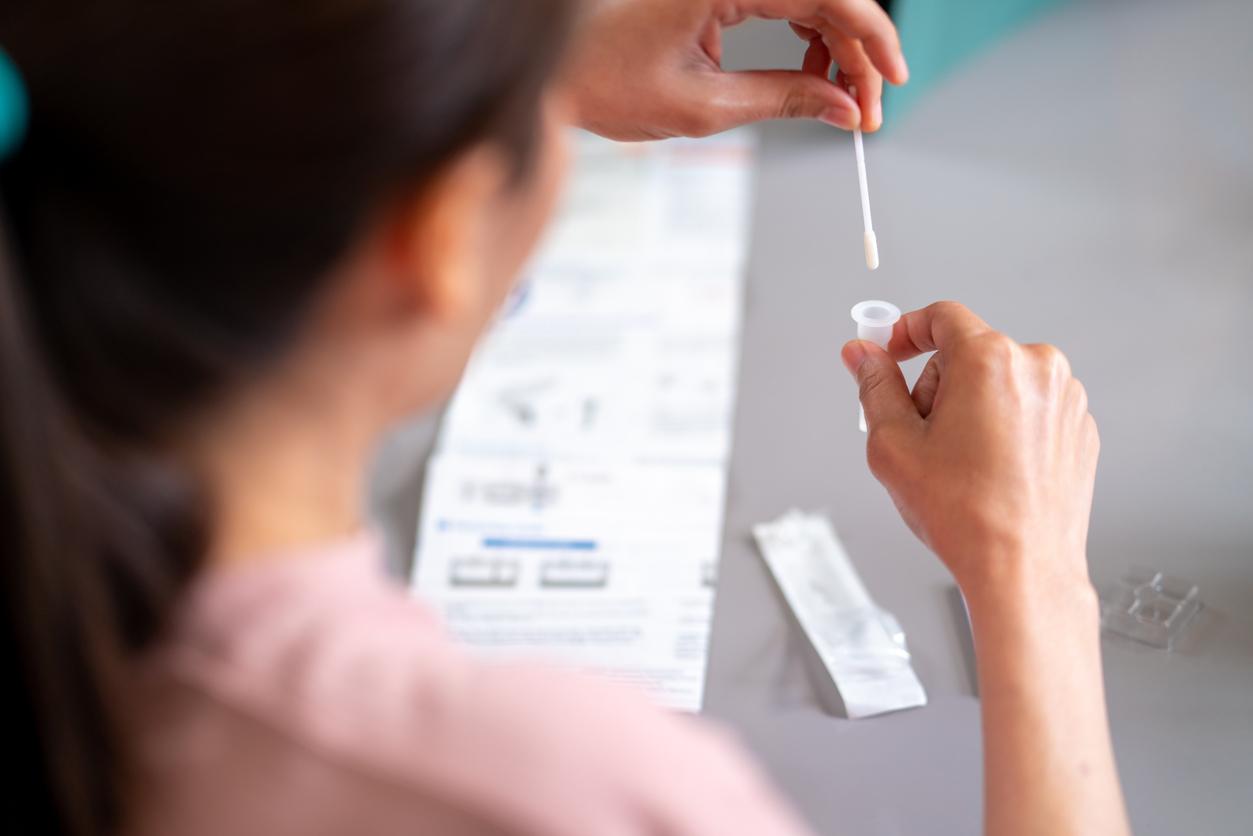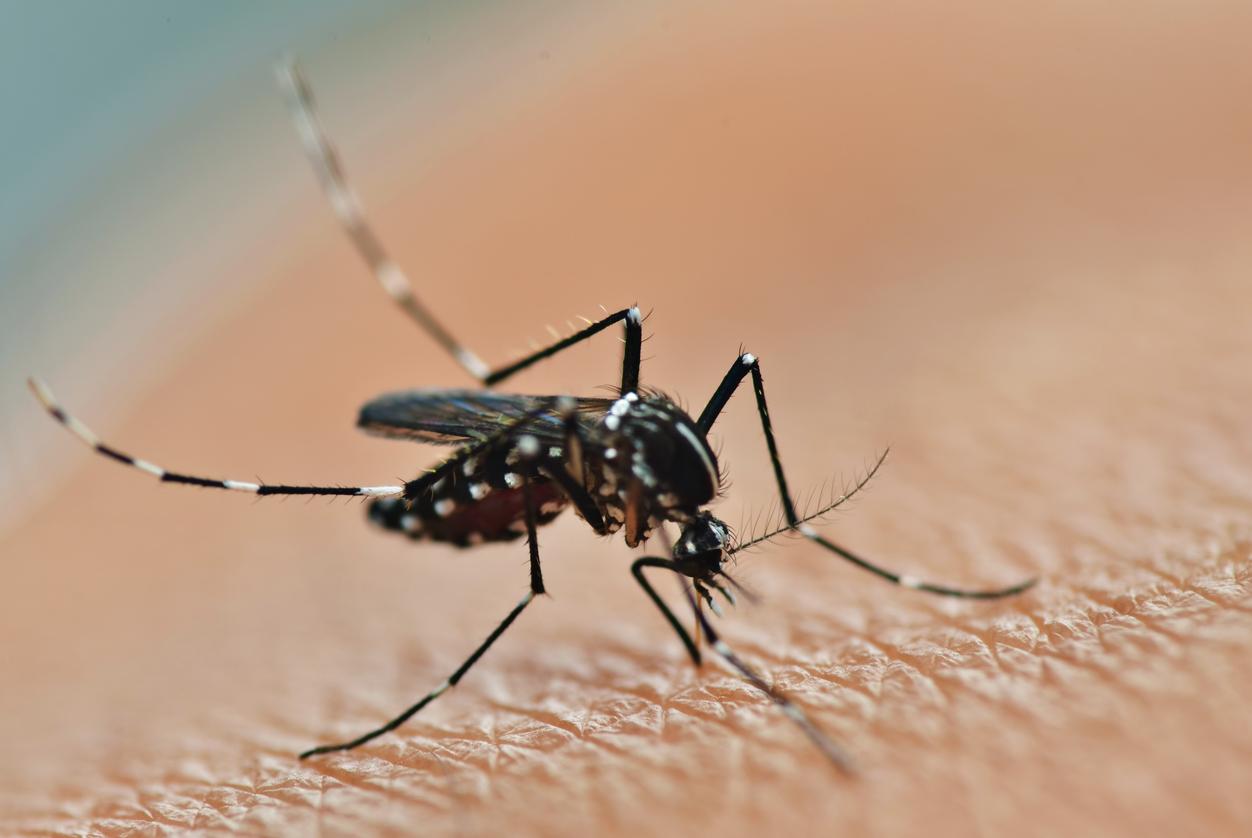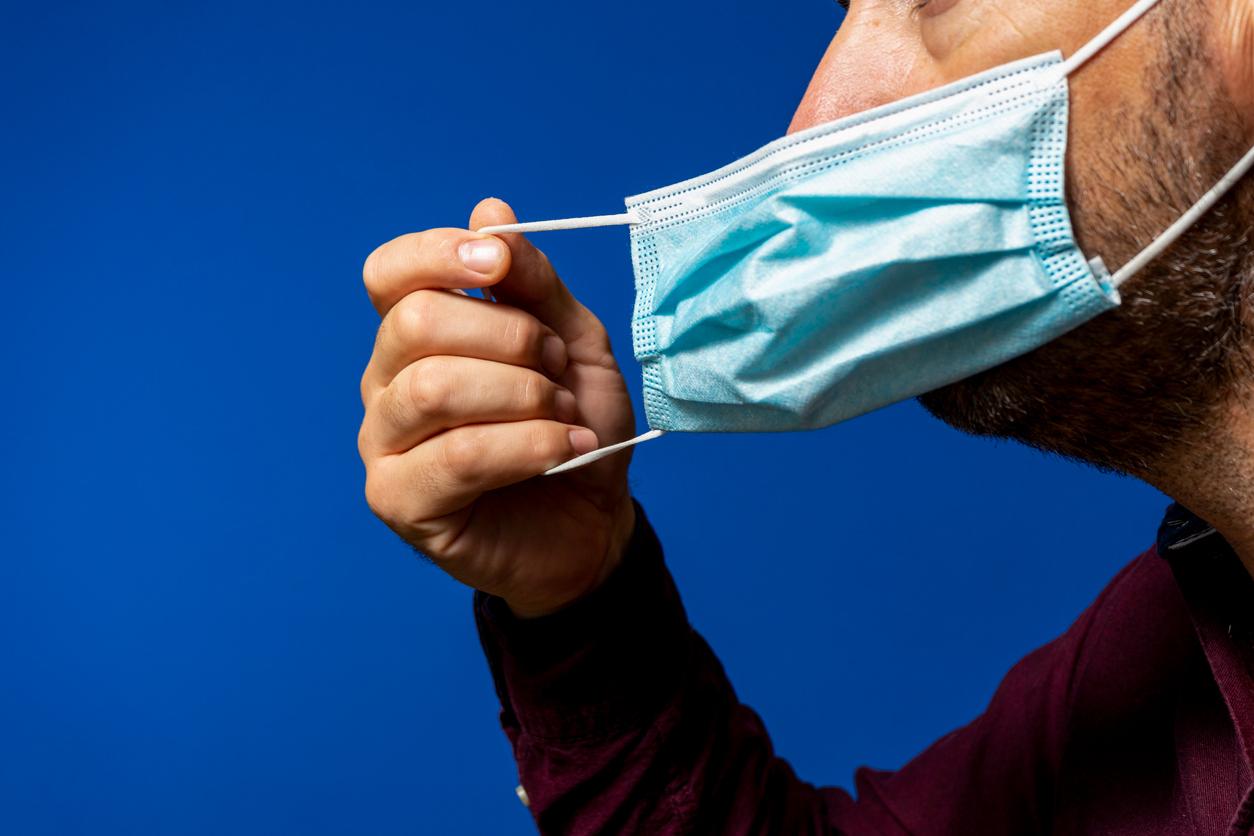Acute gastroenteritis is an inflammatory bowel disease causing nausea, vomiting, abdominal cramping pain, and diarrhea. It is most often secondary to infection with a virus and can cause dehydration, especially in children.

In two thirds of cases, gastroenteritis is due to infection by a virus such as rotavirus, norovirus, adenovirus, etc.
What is acute gastroenteritis?
Acute gastroenteritis is essentially acute diarrhea which is generally accompanied by nausea, vomiting, stomach pain (“abdominal pain”) like cramps, generally in a context of fever, or even dehydration.
What is acute diarrhea?
Diarrhea is defined by stools, liquid or pasty, of various colors which are above all “daily, too frequent and too abundant” (weight greater than 300 g / d in adults). In practice, we speak of diarrhea when there are more than three loose or watery stools per day. Acute diarrhea usually lasts less than 8 to 10 days. It is preceded by normal transit and does not recur in the short term.
What are the causes of acute gastroenteritis?
The main causes of acute gastroenteritis are viral (most commonly rotavirus), bacterial (the bacteria itself or its toxin), parasitic or medicinal (antibiotics).
More than 10% of people who take antibiotics may have diarrhea. This is most often benign, scarce and transient. It is most often due to a decrease in the fermentation capacity of the colon. It is only if it is prolonged that it is necessary to select a pathogenic bacterium in the colon, especially Clostridium difficile.
How do you get gastroenteritis?
The transmission of infectious gastroenteritis occurs through direct contact with a sick person or indirectly through ingestion of contaminated food or water by a sick person or through contact with objects or hands on which fine particles of stools of sick people (“hand-carried” infection). Gastroenteritis is therefore favored by community life and collective catering. Rotavirus gastroenteritis epidemics occur every year in December-January-February.
How is it evolving?
Viral gastroenteritis usually lasts less than three days and does not come back in the short term. Bacterial diarrhea can last up to two weeks.
During acute diarrhea, especially if accompanied by vomiting, complications such as dehydration can appear. This risk is particularly common in infants, the elderly or those with chronic illnesses.
A rare complication in infants and very young children in case of viral gastroenteritis is the occurrence of an acute intussusception which corresponds to an intestinal obstruction: it occurs when an intestinal segment enters the downstream intestinal segment. It’s a surgical emergency.
When to see a doctor
The diagnosis of banal acute gastroenteritis does not generally require the doctor and the pharmacist can provide the products necessary for its management.
However, you must consult a doctor during the day if it is a baby under 3 months and if the baby vomits repeatedly and no longer takes his bottle, and especially in case of dehydration: mouth and tongue dryness, feeling thirsty, weight loss, appearance of a skin fold (when lightly pinched, the skin retains the fold and is slow to regain its initial appearance), weak urine output which is concentrated, dull look and sunken eyes and, finally, if the diarrhea lasts more than 2 days, if it is accompanied by a high fever and if there is blood or mucus in the stool.
When should you see an emergency doctor?
An urgent doctor should be consulted if dehydration causes weight loss exceeding 5% of body weight and is accompanied by a marked skin fold and disturbances in consciousness (malaise, dizziness, etc.) and behavior (restlessness or on the contrary prostration and apathy), it is a question of severe dehydration and it is necessary to consult urgently.
If the diarrhea occurs on returning from a trip to a tropical country, it is also necessary to consult urgently in order to look for a malaria crisis which can be announced by acute diarrhea.
What is the travelers’ diarrhea or turista?
About one in three travelers leaving their country and generally traveling to a country where hygiene is not up to Western standards, has a diarrheal episode.
This acute diarrhea is most often not serious and of short duration (24 to 48 hours), but it can force him to stay in bed or even to modify his trip (30% of cases).
Turista is mainly linked to a digestive infection by certain strains of Escherichia coli bacteria, which cause diarrhea due to the “enterotoxins” they secrete, or by Shigella dysenteriae. These germs are sensitive to the drugs that are usually prescribed in these circumstances (trimethoprim-sulfamethoxazole or fluoroquinolones). Non-typhoidal salmonella, clostridia, lambliases, viruses or amoeba are sometimes involved.
What to do in case of gastroenteritis in adults?
In most cases, acute diarrhea can be managed at home, especially if the condition is recent and does not prevent drinking.
To relieve pain and limit diarrhea, it is possible to take drugs available without a prescription, such as intestinal dressings (clays, etc.) or transit slows.
It is necessary to associate some dietary measures with it: it is necessary to drink more than usual, in particular drinks containing sugar and salt (sugar water, vegetable broths) to compensate for the losses in water and salt linked to diarrhea. It is necessary to take smaller but more frequent meals, consisting of salty foods, rich in sugars and without residue (rice, pasta, cooked carrots). With the exception of bananas, it is better to avoid raw fruits and vegetables, frozen drinks. Soft drinks are not really contraindicated but are often poorly tolerated. It is less difficult to tolerate them by degassing them a little.
Acute diarrhea is usually viral in origin and does not require antibiotics. Antibiotic treatment is only justified if the bacterial cause of the diarrhea has been established by a laboratory stool test or if there is a complication.
What to do in case of gastroenteritis in children?
In infants, it is necessary to avoid giving him formula milk during the diarrhea, on the other hand, it is possible to breastfeed him. If she is not breastfeeding, she should be given only rehydration fluids for six hours (ad libitum). In pharmacies, there are balanced rehydration solutions adapted to the needs of infants. The prepared solution should be stored in the refrigerator for not more than twenty-four hours. It can be administered cold as it calms vomiting. Start by administering 5 to 15 ml each time, several times per hour, in small sips or with a spoon. In babies from 0 to 6 months, we typically give between 30 to 90 ml per hour. From 6 months to 2 years, 90 to 120 ml per hour. If the child starts to vomit again, take a break of 30 to 60 minutes and start the sequence from the beginning (always giving 5-15 ml each time).
When the baby is better, it is then possible to use lactose-free milk for a few days.
When a child 2 years of age or older, suffers from diarrhea, the most important thing is to avoid dehydration and loss of mineral salts. A child should therefore never be rehydrated with pure water, because he could tolerate it badly: it should be ensured that he drinks regularly and more than usual drinks containing sugar and salt (sugar water, vegetable broths or rehydration solutions) to compensate for water and salt losses associated with diarrhea.
It is then necessary to give him smaller meals, but more frequent, composed of salty foods, rich in sugars and without residues which have an anti-diarrheal effect (rice, pasta, cooked carrots). With the exception of bananas, it is better to avoid raw fruits and vegetables, frozen drinks.
Soft drinks are not really contraindicated but are often poorly tolerated. When traveling, when you have nothing else, it is possible to use them by improving their tolerance by degassing them a little.
Intestinal dressings (clays, etc.) or transit retarders can be given to older children (8 years old for loperamide but without limitation for rececadortil). Acute diarrhea is usually viral in origin and does not require antibiotics.
When the diarrhea stops, you should reintroduce your usual foods gradually, over three to four days.
.

















